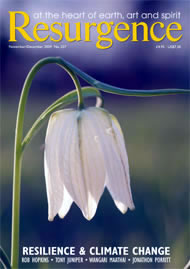For over two decades Thomas Moore has been helping many of us to rediscover the soul and to enrich our everyday lives with a subtle dimension of magic and mystery. As he stated in his seminal book Care of the Soul, a key problem of our time is the loss of soul: when the soul is ignored or repressed, it manifests itself in distorted ways – obsessions, addictions, violence, meaninglessness. But ‘soul’ is not something that can be plainly defined. It is, rather, the mystery we glimpse when we look inside ourselves – an inner world that cannot be reduced to objective parameters, a dimension which speaks not in the language of concepts but in that of images, dreams, myths and poetry.
Moore, who has been particularly influenced by two great Western explorers of the psyche, the Renaissance philosopher Marsilio Ficino and the Jungian psychologist James Hillman, has managed to bring the essentials of their approach to a wide audience and in several books he has applied them to areas such as relationships (Soul Mates), daily life (The Re-Enchantment of Everyday Life), or challenging experiences (Dark Nights of the Soul). His most recent book, A Life at Work, is a guide to help us find a way of living that resonates with who we truly are.
If our soul is not in our job, if what we do most of the day is not in tune with our calling, we are bound to end up unfulfilled and frustrated. As Jung once wrote, creativity is not a luxury but a vital human need. To think that our real life happens only when we are away from work is a recipe for dissatisfaction. What we bring to our life work cannot be separated from our values and passions and from the quality of our emotions and relations. Our work should enable us to grow as human beings and to find our place in society and in the world. It is the royal road to self-realisation.
Moore takes the alchemical quest (which was traditionally referred to as opus – that is, ‘work’) as a model for “the lifelong process of getting life together and becoming a real person”. This process should turn you into “a deeper, more complex, more mature person through your struggle”. Many classical authors felt the presence of what in ancient Greece was called the daimon, an urge that we are born with and that pushes us in a certain direction throughout our life. Perhaps in our shifting, liquid world, we shouldn’t think of single callings that are cast in stone for one’s lifetime. And we know the task of finding our self-realisation through our work is not easy in a world that values efficiency and economic abstractions over values and callings. But often it’s not we who find a job, but rather the job finds us.
In our current systemic crisis, the collapse of the material and ideological structures through which our culture tried to dominate the world will hopefully open up many opportunities to work for social and personal transformation. What are you, with your skills and your passions, meant to do in this crucial time?
Like his mentor Hillman, Moore is very aware of the complexities of the soul, of its lights and shadows, and doesn’t fall into cheap self-help approaches. But here he seems to aim for a more popular style (with, for instance, recurring stories about his neighbours), perhaps at the expense of the depth and richness of his previous books. A Life at Work is a commendable book, but there are other works no less relevant to the task of finding one’s own calling – for example, Eckhart Tolle’s A New Earth: Awakening to Your Life’s Purpose, or Hillman’s The Soul’s Code: In Search of Character and Calling. Jordi Pigem has taught philosophy and cultural ecology at Schumacher College and the University of Barcelona.






